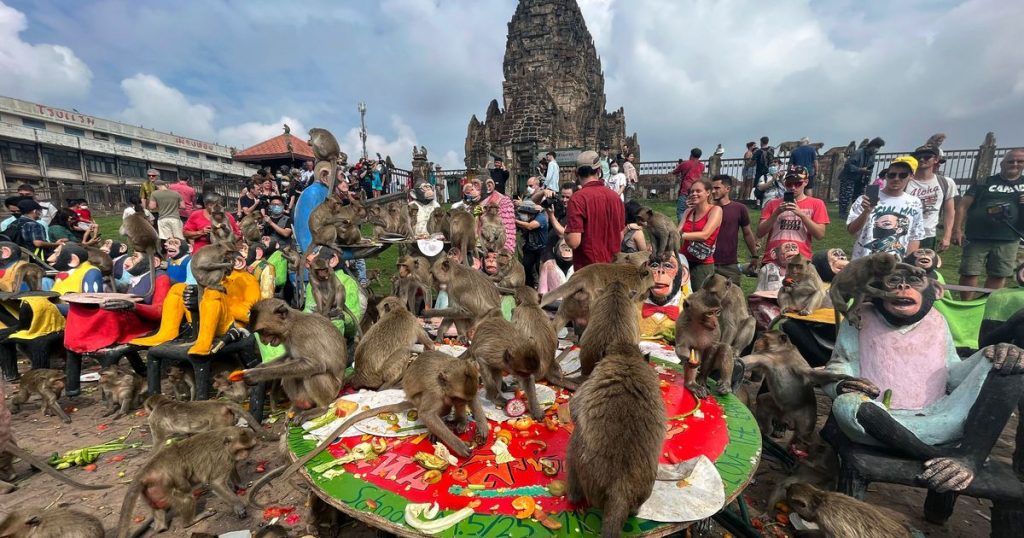Thai wildlife officials in Lopburi have unveiled a plan to address the longstanding conflict between humans and macaques in the central Thai city. The monkeys, considered a symbol of local culture and a major tourist attraction, have been causing problems for residents and visitors for over a decade. The animals frequently attempt to snatch food from humans, leading to dangerous encounters and injuries. Recent incidents, such as a woman dislocating her knee and a man being knocked off his motorcycle by a hungry monkey, have sparked outrage and prompted action.
In an effort to restore peace between humans and monkeys, authorities are embarking on a campaign to capture and relocate approximately 2,500 urban macaques to massive enclosures. The goal is to prevent the animals from harming humans and vice versa, while also allowing a limited number of monkeys to remain in the city. The initiative involves rounding up the more aggressive alpha males first, with plans to capture the rest of the monkeys once the enclosures are ready. Separate cages will be prepared to house different troops of monkeys to prevent conflict.
The first phase of the operation is set to begin in the coming weeks, with wildlife authorities confident that the huge enclosures will be able to accommodate thousands of monkeys and swiftly resolve the conflict. Lopburi, located about 90 miles north of Bangkok, is known for its ancient Three Pagodas temple and annual “Monkey Buffet” festival, where the monkeys are celebrated. Macaques are classified as a protected species under Thailand’s wildlife conservation law, highlighting the need for a humane solution to the conflict.
While some have blamed tourists and residents for feeding the monkeys and attracting them to the city, leading to increased numbers and aggressive behavior, others point out that previous efforts to limit feeding may have backfired. Threatening fines for feeding monkeys in designated areas only served to concentrate certain troops of monkeys in those locations, while others sought food elsewhere and became more aggressive towards humans. Wildlife officials acknowledge that their past population control measures, such as neutering, have not been entirely effective in curbing the issues with the macaques.
Authorities are also addressing similar monkey-related problems in other parts of Thailand, including Prajuab Kiri Khan and Phetchaburi, where incidents involving the animals are frequently reported. The director of the Department of National Parks, Wildlife and Plant Conservation, Athapol Charoenshunsa, emphasized the importance of finding a balance between human and monkey coexistence. By understanding the animals’ behavior and natural food sources, officials hope to devise long-term solutions that will benefit both the monkeys and the local community.


